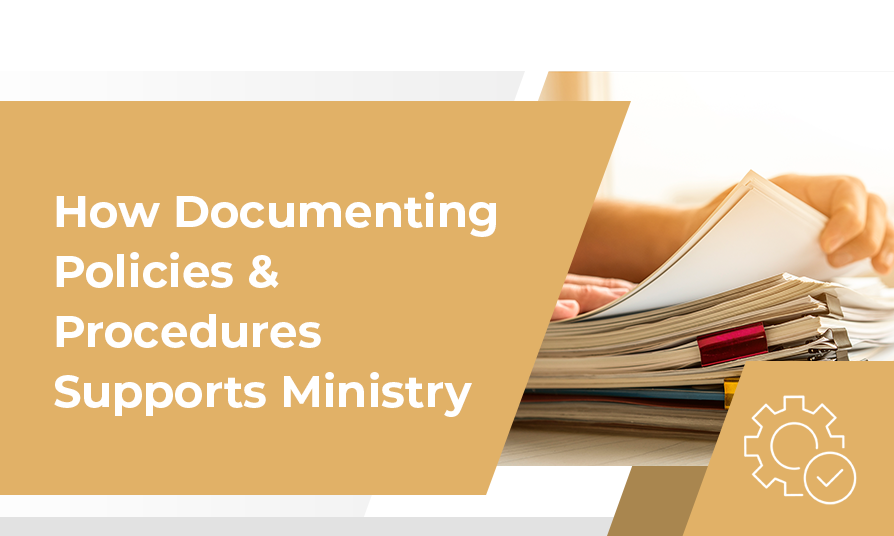When it comes to ministry, most people don’t think of employee handbooks, meeting agendas, or policy and procedure documentation. That makes sense – after all, we gather as congregations to grow in our faith and to share it with others. However, since we do have staff and resources to steward, we need to pay careful attention to how we do things. That’s how documenting policies and procedures becomes useful for supporting the ministry of a church.
If you’re wondering why you should spend time developing and documenting policies and procedures, here are a few benefits of going through that effort:
#1 – Provide clarity
- What day each week do full-time staff members have off since they work on Sundays?
- Do we rent out the church facilities to members, non-members, or various groups?
- Do we offer marriage counseling and if so, how does a couple sign up?
- How do staff members get approval to purchase items they need for their work?
These questions and many more should be addressed within the church’s policies and procedures. Instead of having to answer these scenarios as they come up (and potentially having different people provide different answers), documented policies and procedures answer those questions in advance.
#2 – Offer Protection
Childcare, background checks, and financial approvals are a few processes that can create a great deal of harm to individuals. If handled incorrectly, these can also cause legal trouble for the church. By agreeing on how to handle these situations ahead of time, documenting the procedure, and training those who’re responsible for carrying out these policies, you’re protecting your church and those who attend it.
#3 – Saves time
While the initial time spent creating these documents is significant, this effort will save you time in the long run. Instead of answering many of the same questions with each new employee, they can read the employee handbook first. From there, you can offer to answer their questions as needed. The person who fields questions can refer to documentation when answering requests for weddings, counseling, benevolence, and more.
If you don’t have these documents in place (or if they could use an update), here’s how to get started:
- Review what documentation you have and identify what needs an update, and if you need to develop any additional documentation.
- Research what other churches have done for their documentation.
- Assign a staff member to draft or update each policy or procedure. Unless you’re able to hire a contractor, spreading the workload out to staff who have expertise in a process can help you get the job done in faster.
- Consider having your church’s legal counsel review the documents to ensure you’re following any applicable laws or regulations.
- Distribute the documentation to staff members and review significant changes in the next staff meeting.
- Develop a schedule to review and update each policy or procedure (at least annually).
While documenting policies and procedures doesn’t feel like ministry, this effort truly does support the ministry of your church.



